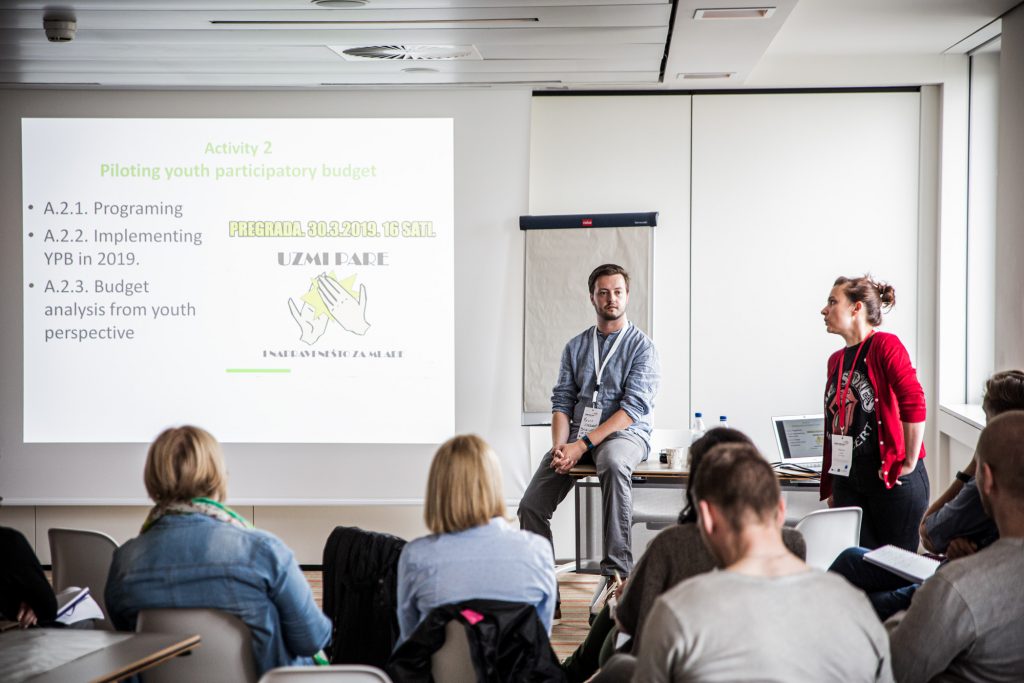“I’m changing Europe!”


Europe Goes Local is currently the biggest European project formed as a strategic partnership between 24 National agencies in charge of implementation of Erasmus+ program in the area of youth work and policy. Croatia participates in this project with 11 municipalities and towns. The project is coordinated by the national delegation represented by the Agency for Mobility and EU programs and experts from the field of Youth Work.
One such project is located in the city of Pregrada consisted of 27 municipalities and located in north-western Croatia. The city’s youth program was partially implemented, there was political will but the missing link was more understanding for the youth and their needs, and a clear action plan. And so the Pregrada project started – with setting of the key goal – creating a sustainable system of support for youth work in the city. Key actions followed – establishing a youth centre, piloting youth participatory budget, building capacities for community youth work and developing new city youth program and youth policy. Pregrada was revived. We talked to the project’s representatives – Tajana Broz and Petra Vdović. Let’s learn more about it!

Q: What is something within/about this project that you want to highlight, focus on/ be heard about? What are some things that make it unique?
Tajana: EGL came to us at a very important time – on the city level we were already discussing why the things with youth policies don’t go as we thought they should. The participation in EGL helped us to formulate agenda, to better understand the youth work and we were not afraid to try new things, to innovate and even experiment. And that’s what is maybe unique in our project having in mind Croatian context where usually policies are made only if the local or national government is completely sure that something will work and if there is a smallest amount of uncertainty governments will not try anything new/different. We did find that courage within EGL.
Q: Why is EU Dimension/Youth Participation important?
Petra: The project helped us to network and connect at European level, to strengthen our capacity to work with young people through the dissemination of information and the exchange of good practice, and we were given the opportunity to educate youth workers but also municipality workers who are working with young people in Pregrada through mentoring, study visits, TCA trainings.
Q: Can you summarize the impact of Pregrada Project so far? What are the biggest accomplishments and challenges so far?
Petra: Through the project, we wanted to create a sustainable system of support for youth work through specific activities: launching a youth center / club, piloting a participatory youth budget, strengthening youth capacity, and initiating the process of developing a new city youth program. Since we know that the EU Dialogue process is the best for empowering young people to become involved in youth policy-making, we have designed a project called Youth at the Center: Strengthening Youth Dialogue and Local Decision Makers. Using the methodology of structured dialogue through the issue of youth centers, we wanted to activate youth in the community and empower them to participate in decision-making processes at all levels, and through the implementation of the project we received the answer to the question what kind of youth center they wanted. We plan to renovate the cinema into a multifunctional space, and to transform the part of it into a space for young people, which will be arranged according to the proposals of young people created at workshops. Also, we piloted the first participatory youth budget in Croatia, along with two other cities. The project carried out education and budget analysis activities from a youth perspective. After the young people gained new knowledge about personal and public finances in financial literacy workshops, a new workshop followed on which young people created three excellent projects. The project teams then had two weeks for a pre-election campaign, where they presented each project in detail to their peers, and afterwards, they voted for the best project, which implementation was financed from the city budget.
Q: How is your project empowering Youth in Pregrada? What type of skills does it help youth develop through its activities?
Tajana: Before participating in the project, our Youth Council was not active. Last year, the new Youth Council was constituted, which is now very active. Members participate in Erasmus + projects, organize workshops and co-operate with the City Children's Council, and they participate in making youth policies. Through Erasmus + projects we are trying to provide young people and youth workers with information, education, training and support that is relevant and adapted to local needs and to stimulate and support continuous competence development.
Q: What is the vision of the project? How does society with effective youth participation look like?
Petra: The core aim of the project is to raise the quality of local youth work in particular through enhanced cooperation between various stakeholders that are active at the municipal level. The project offers the opportunity to learn a lot about youth and youth work, to improve the position of young people in the city and to improve communication, to integrate European projects in daily youth work and to strengthen cross-sectoral cooperation. A democratic society needs the active participation of young people and it has to provide places for youth work where young people can develop their visions, ideas and projects.
Would you like to know more about Tajana and Petra? Read their short introduction as part of the 'Faces of EGL' series!
